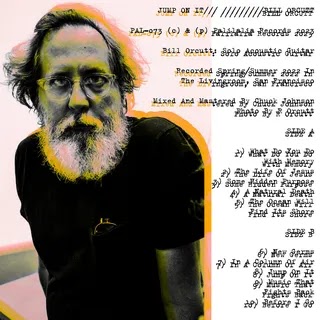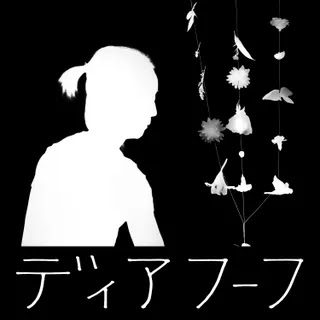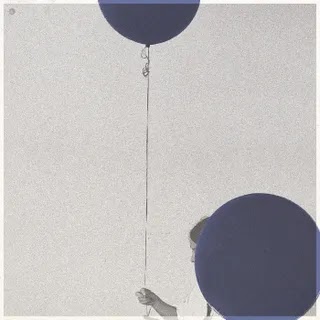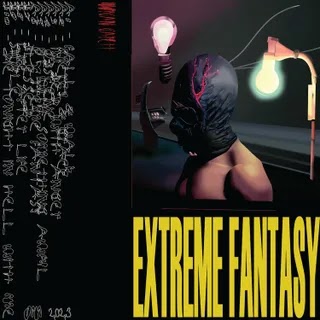Dedicated to an incarcerated man who spent years fighting wildfires in California’s Sierra Nevada, Crampton’s latest album confronts the systems of oppression hidden in plain sight.
For thousands of years, the Sierra Nevada mountains regularly pulsed with wildfires. Lit by indigenous tribes like the Yurok and the Karuk, these controlled burns kept local ecosystems thriving, clearing weeds and detritus that, if left to accumulate, could fuel devastating infernos. When the state of California instituted fire control measures in the early 20th century, that kindling began to build up. Dried out by global warming, the state’s forests have succumbed to hellish blazes in the past few years, many of which have been fought by prison laborers making less than minimum wage alongside trained firefighters. It’s a phenomenon that nearly condenses the myriad horrors of the contemporary United States into a single scene: a forest on fire, thrown out of rhythm by centuries of colonialism, hosed down by people caught in the gears of the prison industrial complex.
Elysia Crampton, the American Indian producer whose experimental electronic music ranks among the most singular and idiosyncratic of the past decade, dedicates her latest full-length release to Paul Sousa, a man “who while incarcerated, worked years as an inmate firefighter across the Sierra Nevada of California.” This image hangs over ORCORARA 2010, which was originally released as the soundtrack to an installation Crampton debuted at the Biennale de l’Image en Mouvement 2018. It was first meant to be heard in a dark room throbbing with diffuse light, an environment where sound overwhelms the senses and the mind can fall into a trance state. As an album, ORCORARA 2010 calls back to that method of listening. Its slow, sparse gestures reward patient attention with delicate, enveloping beauty.
On Crampton’s tight, condensed self-titled album from 2018, voices flitted in and out like stray transmissions from distant broadcast towers. Here, the voice emerges as a central instrument by way of a handful of guests. Jeremy Rojas layers a spoken-word performance atop several piano-driven tracks that set the record’s oblique narratives in motion, while the New York-based singers Embaci and Shannon Funchess appear at two of the album’s high points. Embaci’s classically trained voice darts between tangled acoustic guitars, droning synthesizers, and owl calls on “Grove,” a song whose placidity belies a gut-deep restlessness. Twin guitar lines strobe in and out of sync, and her voice lifts away from the confusion, gliding and searching. Later, Light Asylum’s Funchess, whose unmistakable voice graced the Knife’s 2013 album Shaking the Habitual, makes an earthshaking appearance on “Crucifixion,” a slowly building piece that increasingly sounds like it’s on the verge of toppling. There’s no steady beat to ground her stirring vibrato, just a thicket of quavering instruments, digital and physical, that pulse until a frenetic piano and drum breakdown ushers her out.
The album’s spoken-word segments return continually to the concept of twilight, a charged and liminal state where daylight ebbs away and the clean lines between seen objects tend to blur. “I confused you with the twilight/Confusing myself with you,” says guest vocalist Fanny Pankara Chuquimia on the tranquil meditation “Crest.” In this dusk, boundaries between people—between the self and the other, the “I” and the “you”—soften. Thoughts and desires become harder to constrain inside a single body. Feeling bleeds from skin to skin, and the individual dissolves into the environment.
Full of slippage and lacunae, whipping itself from moment to moment and then fading, ORCORARA 2010 is so absorbing as to make the world outside it seem bizarre, and in this it has political power: There are a great many systems of harm that survive on habit. Enough people have accepted that it is normal to lock others away in cages and send them out to fight fires when the fires get out of hand. Enough people agree upon the many acts of violence sustaining this and other countries that the atrocity is naturalized, a distant but constant pillar of a certain way of life. These systems are bigger than any one person and yet sustain themselves on individuals networked in covert agreement, people who act as porous cells for mass behavior. What would it take to agree on something else—something less painful, where fewer of us die? In its hypnotic and generative confusion, ORCORARA 2010 bores open a portal to a life hiding just beyond this one.
👉👇You May Also Like👇👌
View the original article here
















0 comments:
Post a Comment